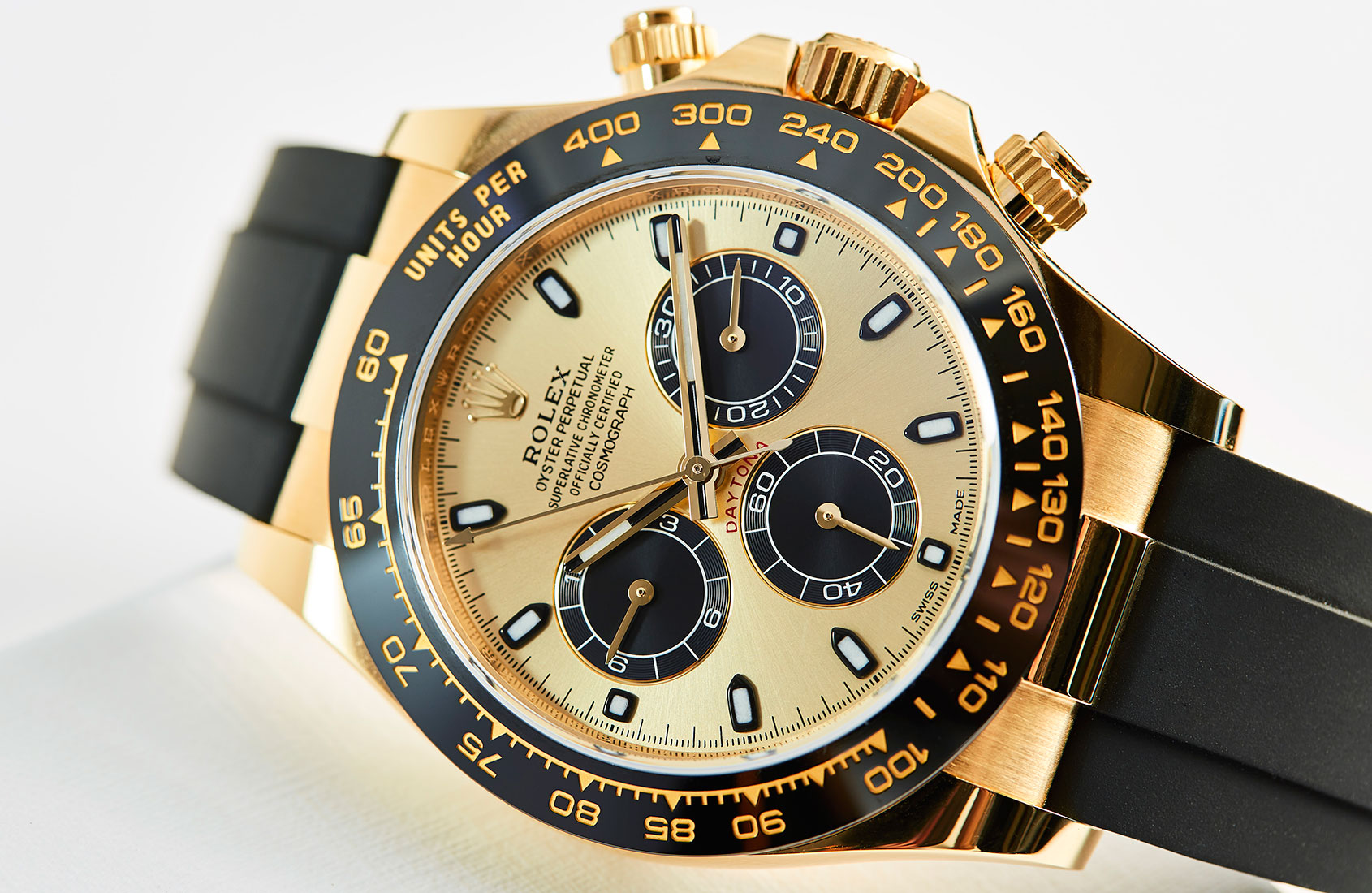NEWS: Study shows that a love of luxury watches is proof of superior virility
Luke BenedictusConsider the magnificent tail of the male peacock. The flamboyance of the plumage fanning out to display multiple colours makes it an arresting sight to behold. But not everyone has been similarly enamored. As Charles Darwin wrote in April 1860, the mere sight of a peacock, “makes me sick!”.
The problem for Darwin was that the peacock’s tail made no evolutionary sense. The bird’s feathers can reach up to six-feet long and make up almost 60 per cent of its body length. Not only does the peacock’s tail therefore make him more visible to predators, it also makes him easier to catch as the additional load slows him down and handicaps his ability to fly.
Subsequently, however, the extravagance of a male peacock’s tail has been found to be directly related to his levels of testosterone. A study found that peacocks with bigger plumes have healthier offspring while those with fewer eyespots enjoy less luck with lady peacocks and have a weaker immune system to boot. From a mating perspective, in other words, if you’re a male peacock it pays if your plume shakes the room.
The reason for this quick treatise on feather-bound physiology is that your fancy watch could be the human equivalent of the peacock’s plumage.
The reason for this quick treatise on feather-bound physiology is that your fancy watch could be the human equivalent of the peacock’s plumage. That’s according to some startling research that shows testosterone levels have a proven effect on a man’s preference for luxury brands.
The 2018 study explored the biological impetus behind acts of conspicuous consumption. One of the lead researchers was Colin Camerer, a Professor of Behavioural Finance and Economics at the California Institute of Technology. He specifically compared the cost of buying luxury items to the burden of the male peacock’s flamboyant tail.
“If it didn’t need to attract mates, a peacock would be better off without its tail. It would be easier for the peacock to escape from predators and easier for it to find food if it wasn’t carrying that tail around,” he said in a CalTech article. “In biology, that’s known as costly signalling.
“A human male would probably be better off not spending $300,000 on a car but, by buying that car, he’s showing people that he’s wealthy enough that he can.”

The study recruited 243 male volunteers who were randomly selected to receive a dose of testosterone or a placebo. The participants were then quizzed on their preferences for different types of goods and asked to choose between luxury brands and more affordable alternatives.
The researchers found that the men who received the extra testosterone had a noticeably stronger preference for the luxury brands than the men who received the placebo. In other words, the testosterone levels determined the type of products they gravitated towards.
If you’re a wristwatch obsessive therefore, your passion may be sub-consciously fuelled by your high testosterone. And if you don’t think this sounds like a good thing, well, that’s understandable, too. Testosterone’s public image often gets a bad rap these days with the hormone becoming widely associated with dumb jocks, bad decisions and moronic posturing.

As Rebecca Jordan-Young and Katrina Karkazis write in Testosterone: An Unauthorized Biography: “T is at once a specific molecule and a mercurial cultural figure – a familiar villain and attractive bad boy that supplies a ready explanation for innumerable social phenomena.”
In fact, no one has established a credible link between high testosterone levels and traits such as bravery or risk-taking. But the hormone does offer certain benefits. From a physical perspective, for starters, testosterone helps to promote muscle growth. Men with low levels are also four times more likely to be depressed according to the Archives of General Psychiatry. In addition, one study found that women are more attracted to men with high levels of testosterone because they are more naturally confident and forward.
Most significantly from a T+T perspective, however, the fact that men with high testosterone are often magnetised towards luxury items means that they’re more likely to wind up with a really nice watch. That recent addition to your collection, in other words, wasn’t just a mindless act of extravagance. It was evidence of your primal superiority.
“In our closest animal kin, males spend a lot of time and energy fighting to establish dominance,” Camerer said. “We do, too, but our weapons are what [I think it’s fair to assume he’s referring to watches] we wear, drive, and live in rather than claws, fists, and muscles.”






